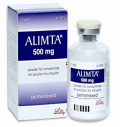
PATENT LAW
Scope of protection
The reformulated (guideline) questions for finding infringement are as follows:
i) Notwithstanding that it is not within the literal meaning of the relevant claim(s) of the patent, does the variant achieve substantially the same result in substantially the same way as the invention, ie the inventive concept revealed by the patent?
ii) Would it be obvious to the person skilled in the art, reading the patent at the priority date, but knowing that the variant achieves substantially the same result as the invention, that it does so in substantially the same way as the invention?
iii) Would such a reader of the patent have concluded that the patentee nonetheless intended that strict compliance with the literal meaning of the relevant claim(s) of the patent was an essential requirement of the invention?
In order to establish infringement in a case where there is no literal infringement, a patentee would have to establish that the answer to the first two questions was “yes” and that the answer to the third question was “no”.
Appropriate use of prosecution history
• Reference to the file would only be appropriate where (i) the point at issue is truly unclear if one confines oneself to the specification and claims of the patent, and the contents of the file unambiguously resolve the point, or (ii) it would be contrary to the public interest for the contents of the file to be ignored.
87. In my judgment, it is appropriate for the UK courts to adopt a sceptical, but not absolutist, attitude to a suggestion that the contents of the prosecution file of a patent should be referred to when considering a question of interpretation or infringement, along substantially the same lines as the German and Dutch courts. It is tempting to exclude the file on the basis that anyone concerned about, or affected by, a patent should be entitled to rely on its contents without searching other records such as the prosecution file, as a matter of both principle and practicality. However, given that the contents of the file are publicly available (by virtue of article 128 EPC 2000) and (at least according to what we were told) are unlikely to be extensive, there will be occasions when justice may fairly be said to require reference to be made to the contents of the file. However, not least in the light of the wording of article 69 EPC 2000, which is discussed above, the circumstances in which a court can rely on the prosecution history to determine the extent of protection or scope of a patent must be limited.
88. […]. The first type of circumstance is, I hope, self-explanatory; the second would be exemplified by a case where the patentee had made it clear to the EPO that he was not seeking to contend that his patent, if granted, would extend its scope to the sort of variant which he now claims infringes.
Direct infringement by Actavis products
• Looking at matters more broadly, the addressee of the Patent would, as I see it, understand that the reason why the claims were limited to the disodium salt was because that was the only pemetrexed salt on which the experiments described in the specification had been carried out. However, it does not follow that the patentee did not intend any other pemetrexed salts to infringe: the suggestion confuses the disclosure of the specification of a patent with the scope of protection afforded by its claims.
Particularly given the facts set out in para 25 above, it seems to me very unlikely that the notional addressee would have concluded that the patentee could have intended to exclude any pemetrexed salts other than pemetrexed disodium, or indeed pemetrexed free acid, from the scope of protection.
75. Accordingly, I would conclude that, subject to considering the prosecution history, the Actavis products infringe claim 1 of the Patent.
• Turning to the second issue, I do not consider that the contents of the prosecution file in this case justify departing from the provisional conclusion expressed in para 75 above. It seems to me clear that the reason why the examiner considered that the claims in the patent should be limited to pemetrexed disodium was because the teaching in the specification did not expressly extend to any other anti-folates.
Indirect infringement
• Accordingly, I would uphold the Court of Appeal’s determination that Actavis are liable to Lilly for indirect infringement in the United Kingdom with respect to their products if Actavis know, or it is obvious in the circumstances, that ultimate users will dilute in saline - or at least Actavis would be liable for indirect infringement if they were not liable for direct infringement. The Court of Appeal said that this conclusion would apply equally to France, Italy, and Spain, and there is no challenge to that from Actavis.
IPPT20170712, UKSC, Actavis v Eli Lilly

















